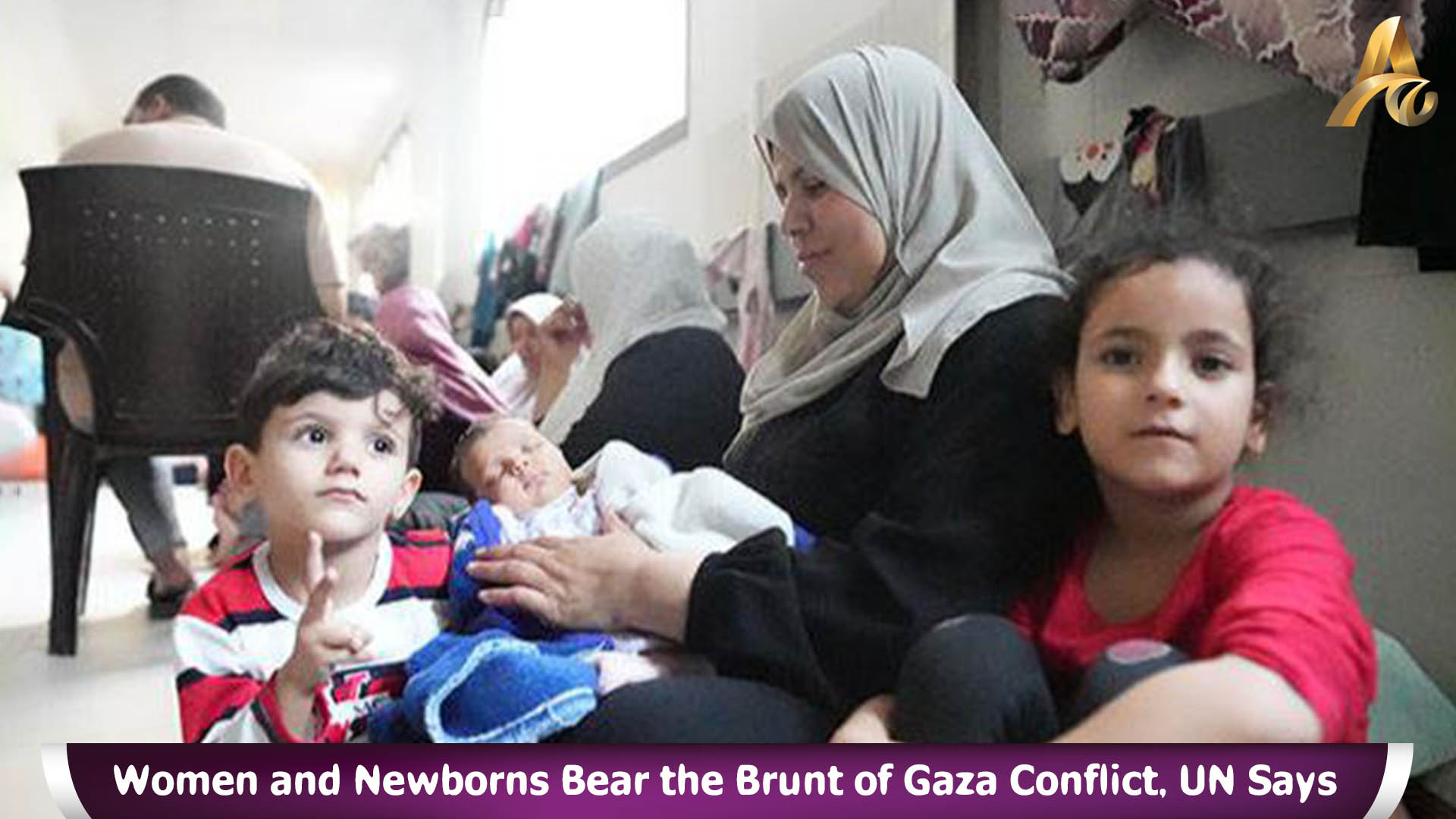WHO: The United Nations Children's Fund (UNICEF), the United Nations Relief and Works Agency for Palestine Refugees in the Near East (UNRWA), the United Nations sexual and reproductive health agency (UNFPA), and the World Health Organization (WHO) have issued a dire warning regarding the escalating hostilities in the occupied Palestinian territory. They highlight the severe impact on women, children, and newborns, both as casualties and in terms of limited access to essential health services.
According to data from the Ministry of Health as of November 3, the Gaza strip has witnessed the tragic loss of 2,326 women and 3,760 children, constituting a staggering 67% of all casualties. Tragically, this translates to an average of 420 children being killed or injured daily, some as young as a few months old.
The relentless bombardments, widespread damage to or non-functioning health facilities, large-scale displacement, dwindling water and electricity supplies, and constrained access to food and medicines are severely disrupting maternal, newborn, and child health services. Gaza is home to approximately 50,000 pregnant women, with more than 180 giving birth each day. A concerning 15% of them are likely to encounter complications related to pregnancy or childbirth, necessitating additional medical care.
Regrettably, these women are unable to access the emergency obstetric services required for safe childbirth and newborn care. The closure of 14 hospitals and 45 primary health care centers has left some women with no choice but to give birth in shelters, their homes, amidst the rubble-strewn streets, or in overwhelmed healthcare facilities, where sanitation conditions are deteriorating, and the risks of infection and medical complications are on the rise. Furthermore, even healthcare facilities are not spared from attacks, as witnessed when Al Hilo Hospital, a critical maternity hospital, was shelled on November 1.
The lack of access to adequate care is anticipated to lead to an increase in maternal deaths. The psychological toll of the hostilities is also impacting reproductive health, contributing to stress-induced miscarriages, stillbirths, and premature births.
Before the escalation, malnutrition was already prevalent among pregnant women, with adverse effects on child survival and development. The ongoing difficulty in accessing food and water has left mothers struggling to nourish and care for their families, exacerbating the risks of malnutrition, disease, and death.
The lives of newborns are hanging by a thread. The availability of fuel is crucial for hospitals to operate neonatal and intensive care services, sustaining the lives of approximately 130 premature babies who rely on these critical medical resources.
More than half of Gaza's population is now seeking refuge in UNRWA facilities, enduring harsh conditions characterized by inadequate access to water and food. This has led to hunger, malnutrition, dehydration, and the spread of waterborne diseases. UNRWA's initial assessments indicate that around 4,600 displaced pregnant women and approximately 380 newborns residing in these facilities require immediate medical attention. Shockingly, over 22,500 cases of acute respiratory infections have been reported, along with 12,000 cases of diarrhea, a grave concern in the face of already high malnutrition rates.
Despite the challenges, UN agencies have dispatched life-saving medicines and equipment to Gaza, including supplies for newborns and reproductive health care. However, the scale of the crisis demands much more. Humanitarian agencies urgently require consistent and secure access to deliver additional medicines, food, water, and fuel into Gaza. Shockingly, no fuel has entered the Gaza Strip since October 7. It is imperative that aid agencies receive fuel immediately to sustain their support for hospitals, water treatment facilities, and bakeries.
An immediate humanitarian pause is essential to alleviate the suffering and prevent the dire situation from escalating into a catastrophe.
All parties involved in the conflict must uphold their responsibilities under international humanitarian law to safeguard civilians and civilian infrastructure, including healthcare facilities. Every individual, including those currently held hostage in Gaza, has the right to access healthcare. The release of all hostages must occur promptly and without conditions.
Notably, all parties must prioritize the protection of children from harm and ensure they receive the special safeguards to which they are entitled under international humanitarian and human rights laws.
























